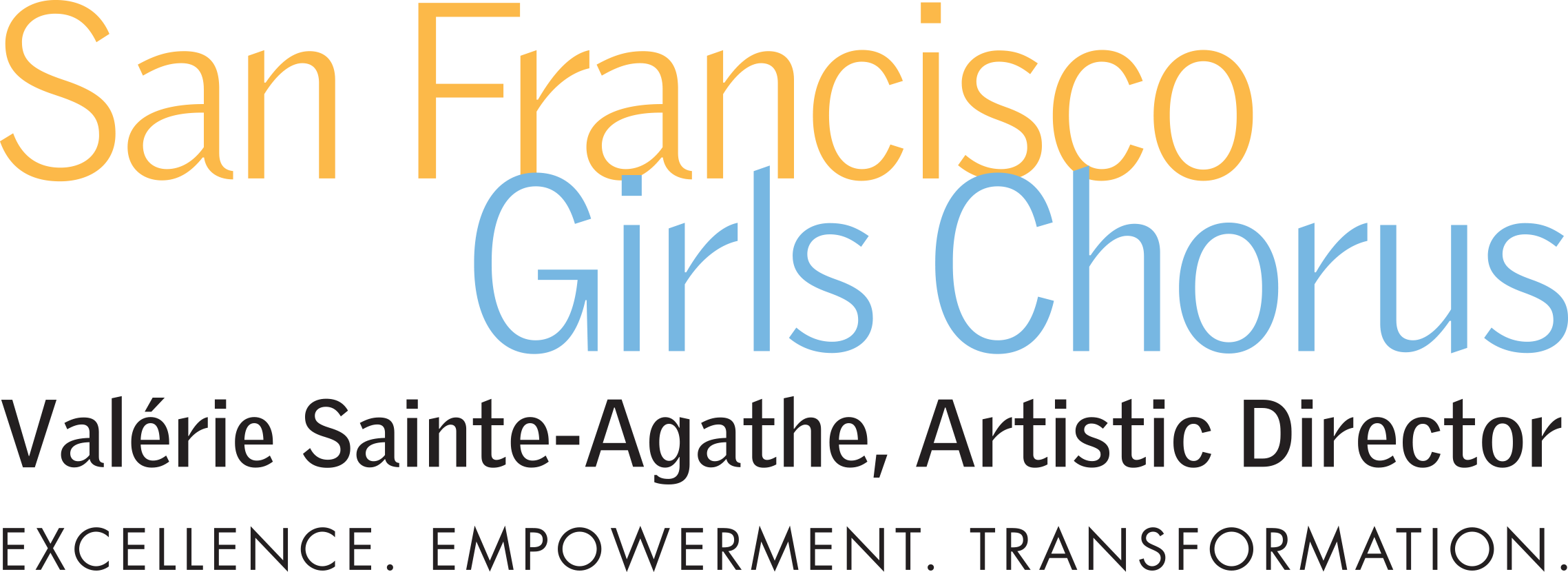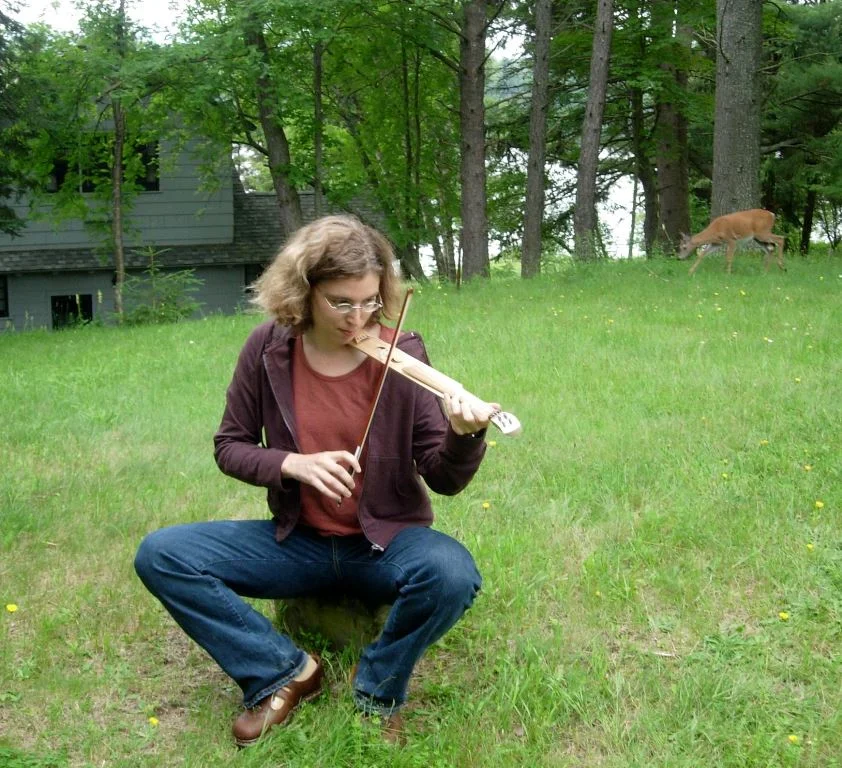Postcard from Alumna and composer Emily Doolittle
This week’s Postcard is from composer Emily Doolittle, who lives in Scotland, grew up in Nova Scotia, and spent one year as an SFGC chorister in 1984-85. Her piece “Seal Songs” will receive its American premiere on our Mystics and Ecstatics concert on June 4, 2017.
Dear SFGC Community:
I’ve been interested in music for as long as I remember. When I was four my aunt gave me a recorder and she wrote me a little book of simple tunes and I remember already trying to write some of my own music then. I made up little recorder instruction books. I started playing piano when I was five. Although I grew up in Nova Scotia, when I was twelve my dad had a sabbatical in Palo Alto, so we went there for the year and my aunt (the same aunt who introduced me to the recorder) knew about the SF Girls Chorus. I hadn’t really done much singing before then – just choirs at school – so I practiced a lot with my piano teacher, auditioned and was accepted to what was at that time the Advanced Group. It was quite a commitment to be in the SFGC, a lot of traveling back and forth between Palo Alto and SF – I was lucky that my parents were willing to drive me, and we had a little carpool.
In Nova Scotia I had been in a school choir which I hated because so many of the songs were silly and childish. Playful can be great, but a lot of these songs were just inane. One of the things that was and is amazing about the SFGC was that it treats kids like serious musicians. Of course the Chorus has pieces that are right for young girls’ voices, but it doesn’t treat choristers like they are “just” silly kids who can’t do anything meaningful. I was only in the SFGC for one year, but it definitely changed my perception of what I could do and what I wanted to be as a musician. After that I got serious about different things – I started playing oboe, and for a while I thought I wanted to be a pianist, then I thought I wanted to be an oboist (I actually entered university as an oboist) and it wasn’t until after my first year of university that I went to a summer camp and had the opportunity to take composition lessons there, and I realized that that was what I wanted to do. Of course I always loved singing and playing music, but I never loved practicing or performing – they always felt like a means to an end, to being involved with music. I knew I wanted to be a musician but I hadn’t found quite the right way to be a musician until I realized I wanted to be a composer, with its combination of listening, creating things, figuring things out, and collaborating with performers.
Often you hear people justifying studying music by saying “if you do music it will make you better at working with people, or doing math or science,” and I sort of hate that idea, because even if the only thing that singing in a choir were good for was singing in choir, that alone would be great! Because singing in a choir is fantastic. Simply having music as part of your life is worth everything, whether you are going to be a professional musician, or a good amateur! It’s still worth having in your life. When you’re young, it takes time to figure out what you want to do. I didn’t realize I wanted to be a composer until I was 18 – and many people don’t figure this out until they’re 28, or 38, or 58! It’s normal to want to try out different things, but in music, any sort of expertise in any realm of music is going to help your musicianship overall. Singing helps develop a certain sort of lyricism for composers. When I write melodies, my experience as a singer, an oboist, a pianist informs my music-making. Having played in orchestras and sung in choirs informs my understanding of how to write for ensembles. 10 years ago I started playing fiddle so I could play traditional music, and I’m never going to be a professional-level fiddle player, but it’s super-fun!
As musicians we’re always wanting to improve and get better – it doesn’t stop even when you’re a professional. The experience of doing your best, knowing where you want to go and working towards that in a way that can’t be met overnight but is an ongoing process is really central for anyone who wants to do anything that they care about.
And it’s never too late to learn! I’ve taught piano to students of all ages up to 60’s and 70’s. If you start when you’re 70 you’re probably not going to be a professional musician, but you can still learn to a great level, provided you practice and put work into it. At any age people can become part of a music-making community. I moved to Amsterdam to study almost 20 years ago, and when I was there I heard a European blackbird singing for the first time. It has an amazing song – short bits of what it sings sounds a lot like human music, but the whole song doesn’t sound very much like human music at all. I ended up writing a piece in which I explored the way a blackbird and a human would arrange the same set of musical motives. I had thought that would be my bird piece and I would move onto other ideas, but it actually raised more questions than it answered, so I’ve been looking at animal songs in various ways since then. I’m actually about to start on another seal-related project. Even though grey seal howling is well-known in folklore and everyone who lives in Scotland knows that they do it, it’s never been studied scientifically, so nobody knows which seals sings, the parameters of their calls, the behavior around it. So I’m just starting an interdisciplinary project with Vincent Janik and Alex Carroll who are seal researchers at St Andrews University in Scotland. We’re going to analyze the songs, I’ll write a piece, and then we’ll write a scientific paper as well.
Wishing you a wonderful performance this weekend. Wish I were there with you all!
Yours,
Emily Doolittle



